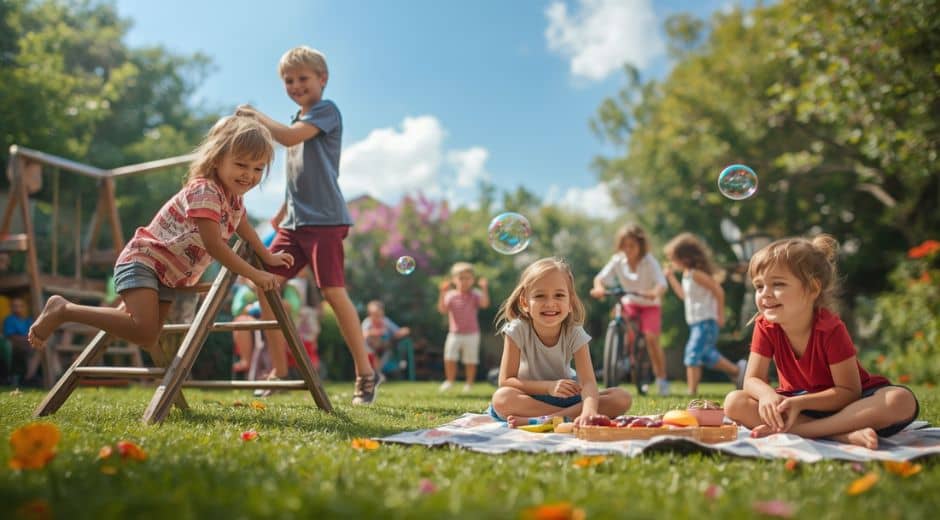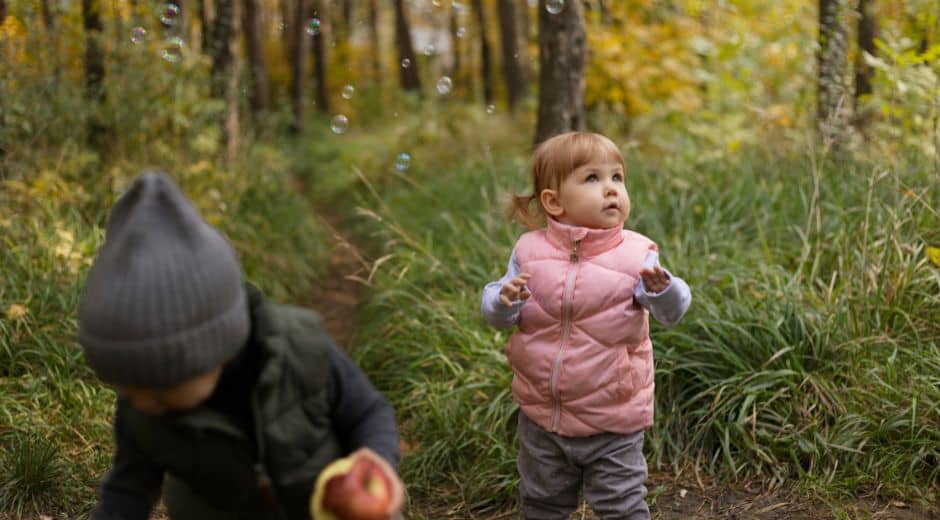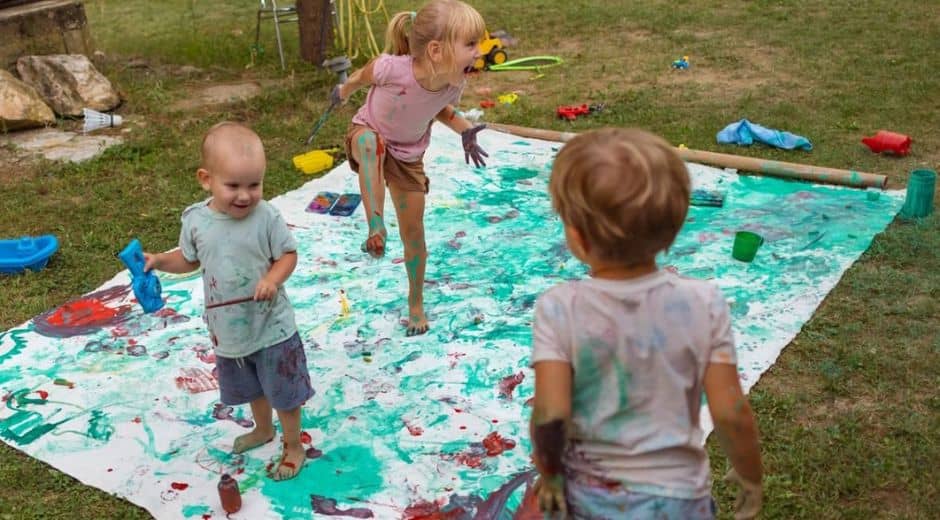Backyard Fun: Activities to Spark Adventure at Home
Backyard Fun: Activities to Spark Adventure at Home
The backyard is often an overlooked treasure trove of fun, creativity, and adventure waiting to happen. For parents looking to engage their children in meaningful, active play, the solution is simple: step outside. From climbing trees to building forts, the great outdoors offers a wealth of possibilities.
Outdoor play has been proven to boost children’s physical health, improve motor skills, and spark their imagination. According to Parents.com, kids who spend more time outdoors are more active, less stressed, and develop stronger connections with nature. The backyard is the perfect place to cultivate these benefits, transforming the space into an outdoor classroom, playground, and adventure zone all in one.
The Backyard Adventure Zone
Creating a backyard adventure zone is easier than you think. You don’t need a giant space or an expensive playset — just some creativity and a few key tools. Here are some activities that can transform your yard into a fun-filled, educational playground:
1. Backyard Scavenger Hunt
Create a list of natural items for your children to find — leaves, rocks, sticks, flowers, or even a certain type of bird. This activity encourages observation, exploration, and problem-solving as kids race to find the items on their list. You can also adapt this for different age groups by increasing the difficulty of the clues or incorporating riddles.
Tip: Use a camera or smartphone to take photos of the items they find, turning the hunt into a fun, visual activity.
2. DIY Obstacle Course
Set up a simple obstacle course using everyday household items like chairs, hula hoops, ropes, and blankets. Kids can jump over cushions, crawl under chairs, or balance on a line of tape — the possibilities are endless. Not only does this help with physical coordination and fitness, but it’s a great way for kids to get creative in designing their own courses.
Active Learning Through Nature
A backyard adventure is not just about physical play; it can also be a chance to teach children about the natural world. By using the backyard as a learning environment, you can encourage kids to observe the wonders of nature and build an appreciation for the environment.
3. Nature Art Projects
Take a walk through the backyard with your child and gather leaves, twigs, rocks, and flowers. Bring these treasures back inside to create nature-inspired art projects. Children can create leaf prints, rock sculptures, or even design their own nature mandalas. This activity fosters creativity while helping children connect with the natural world.
4. Planting a Garden
Gardening is an excellent way to teach kids about responsibility, patience, and the cycle of life. Whether it’s flowers, herbs, or vegetables, planting a garden in your backyard can give your child a sense of accomplishment as they watch their plants grow. If you’re short on space, container gardening is also a great option.
Building Stronger Bonds
The backyard is a great place for families to come together, build relationships, and create memories. Outdoor activities encourage cooperation, teamwork, and communication, while providing parents with the chance to spend quality time with their children.
5. Family Picnic
Pack a picnic basket with your child’s favorite snacks, a blanket, and some outdoor games, and set up a family picnic right in your backyard. Enjoying a meal outdoors and playing games like frisbee or catch will allow your family to bond while enjoying the fresh air.
6. Backyard Campfire
Build a small, safe campfire (or use a fire pit) in your backyard, and tell stories under the stars. You can roast marshmallows, make s’mores, or simply enjoy the peaceful atmosphere. This low-key activity brings the family together, offering a time for storytelling, laughter, and relaxation.
The Benefits of Unstructured Play
When kids are left to their own devices in the backyard, they often come up with the most creative games. Unstructured play — where kids create their own activities without parental interference — is crucial for developing problem-solving skills, independence, and social skills.
Encourage your children to explore the backyard freely. Set out some basic props, like a ball or a few toy animals, and let them invent their own games. The freedom to create their own adventures boosts self-confidence and gives children a sense of ownership over their playtime.
Conclusion: The Endless Adventure of the Backyard
While recognizing your child’s natural learning style is crucial, it’s also important to adapt to challenges. Every child will face obstacles — whether it’s difficulty understanding a particular subject, issues with focus, or learning delays.
If you notice your child struggling, work with their teachers to find tailored strategies. Sometimes children need a mix of learning styles to get through tough concepts. If they’re having trouble with a specific subject, incorporate hands-on activities, audio cues, or visual aids to bring the material to life.
Remember, your child’s Potential isn’t limited by one approach. Flexibility and support are key to helping them reach their goals.
Conclusion: Fostering Lifelong Potential
The backyard is the ultimate space for adventure, creativity, and learning. Whether you’re organizing structured activities or allowing your child to explore freely, there are endless opportunities to foster a love of nature, improve physical health, and build stronger family bonds.
As Moviefil.com explains, children’s playtime is an essential part of their development, and the backyard can provide the perfect setting for both fun and growth. By turning your yard into a place of exploration and imagination, you unlock your child’s Potential for discovery, learning, and lifelong memories.
So, step outside, get creative, and turn your backyard into the ultimate adventure zone. Your child’s next big discovery is only a few steps away.
For more insights about parenting, visit: CoolParentingTips.
Learn Bond Bloom

After School Routine That Helps Kids Unwind and Reset
After School Routine That Helps Kids Unwind and Reset

Raising Confident Kids Through Everyday Parenting Choices
Raising Confident Kids Through Everyday Parenting Choices

How Parent Child Trust Grows Over Time
How Parent Child Trust Grows Over Time

Mindful Family Habits For Less Stressful Days
Mindful Family Habits For Less Stressful Days













